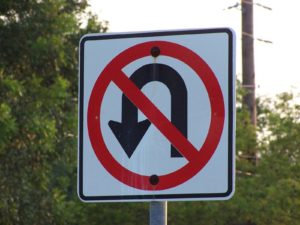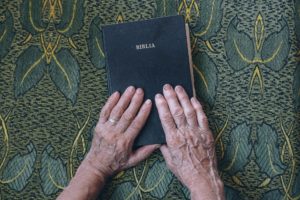G. Lee Southard, PhD
Everyone should ask themselves the question “What Is My Spiritual Genealogy?” You have a spiritual genealogy that is different from your biological genealogy but no less important. You are not here by accident. Your forefathers paid a price for what you enjoy today.
A Spiritual genealogy reflects the people from the past who gave you your spiritual heritage. God planned your Spiritual Genealogy before creation (Gen 1). He predestined that you would be found holy and blameless in his sight through Jesus Christ. (Eph 1: 4-10) Prior Christians passed down this genealogy in an unbroken chain of events through the ages. The primary instrument for doing this was the church that was given birth by the resurrection of Jesus and the arrival of the promised Holy Spirit at Pentecost. (Acts 2)
Think about it!.The disciples at Pentecost had been eyewitnesses to his life, death and resurrection and as a result they knew with certainty that Jesus was the promised Christ. So inspired, they and the Apostle Paul would take his message, even under threat of death unto the ends of the known world (Mathew 28: 19-20). This is one of the great evidences for the the life, death and resurrection of Jesus.
Their direct successors, the Apostolic Fathers who were themselves disciples of the original disciples would continue this mission work. Having a direct connection to an eye witness of Jesus was a requirement in order to engage in affirming the New Testament books. In the first century they would assemble the earliest New Testament scriptures in the Greek language of the day. This allowed the Gospel to spread rapidly westward as far as Spain and eastward as far as China.
This second century a more formalized New Testament was identical to today’s in terms of the number of books and the order. The same Apostolic fathers, being eyewitnesses to the original twelve, would be the first of an unbroken chain of Church fathers down through the early centuries. They would preserve and copy the scriptures and begin the building of the church into a form of worship that has held to this day. They would take issue and write, challenging the so-called gnostic gospels written in the second and third centuries. They would keep the original Gospels pure from heretical writings. We know them as Clement of Rome, Polycarp, Ignatius, Papias, Irenaeus, Tertullian, Augustine, Athanasius and Eusebius.
In the fourth century when Christian persecution by the Romans lifted due to Constantine it was a series of church fathers that kept to the core theology against heresies and alternative interpretations concerning Jesus. The result was the Nicene Creed and the Apostle’s Creed that we recite today in Church. These creeds have their origins in first century statements of faith that state with clarity our core beliefs.
When the Roman Empire fell after the Church split into Eastern (Orthodox) and Western (Roman Catholic) Churches the Western Church became corrupt because of the power vacuum it filled as a result of the demise of the empire. However, it was courageous church reformers who stepped in to correct the church when it went astray due to abuses of power. Even so the church through its people was active in starting schools for education, establishing hospitals and preserving scripture. These reformers were active around the first millennium through the next 500 years. Their names are Aquinas, Wycliffe, Hus, Luther, Zwingli, Tyndale, Simons and Calvin. Wycliffe, Tyndale and Luther would translate the Bible into the language of the people furthering the spread of the Gospel and setting the stage for the Protestant Reformation. Tyndale was burned at the stake.
The Christian Church became a powerful religious, political, social, cultural, economic, and intellectual institution leading to Western Civilization. This lasted from late antiquity to the Middle Ages into the Renaissance and Reformation and into modern times. These contributions were schools, the university, the concept of liberty and justice, respect for law, a free church and not a state-run church. All of these concepts were adopted by the new nation that emerged called America.
During the age of discovery of the 15th through the 17th century it was the Spanish, French, Dutch and the English who would carry the faith across the Atlantic to a New World sometimes with less than Christian ideals. A new nation would come out of settlements established by the English Christians at Roanoke Island, Jamestown and Plymouth Rock. Their charters would specifically state that they were to promote the Christian faith. The faith would spread across America from sea to shining sea through Christian pioneers seeking better lives.
As you know most of our founding leaders were Christians. Their writings reflect the Christian faith and the pursuit of freedom. This has been passed down through generations of Americans to arrive to you today. Wars were fought to protect those freedoms derived from the faith.
So this is the Spiritual Genealogy that has been passed down to you today directly from the time of Jesus. Unfortunately we have ignored our heritage and as a result we are beginning to see the price paid we pay for having abandoned them.
So honor your heritage and live as Christ intended you live. A lot of people died to give you that right.
This has been an abbreviated excerpt from the book To Know With Certainty: Questions Christian Students Need To Answer On Leaving High School.




